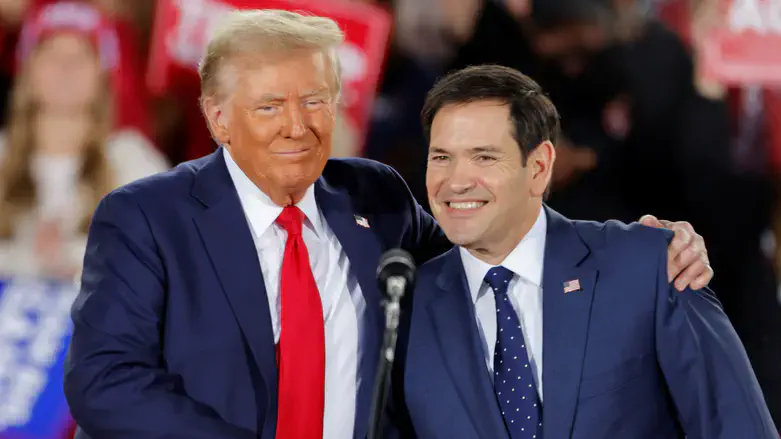
With former President Donald Trump’s re-election, America’s allies will once again be looking to Washington for signs of continued support, especially in Israel and Ukraine.
Trump's administration has announced an unsurprisingly controversial slate of potential appointees. On the more positive side, from Secretary of State Marco Rubio, to National Security Advisor Congressman Mike Waltz, and Ambassador to the UN Elise Stefanik, the selections underscore a policy of solid support for Israel, with the promise of strategies to support Israeli operations in the region while putting increased pressure on the Iranian regime. Vice President Elect J D Vance provides a backup for this position, as does the short-on-experience-but-long-on-rhetoric Defense Secretary pick Pete Hegseth.
For Ukraine, however, the news looks more challenging: several appointees have spoken about the need to end the war in the immediate short term—essentially, for Ukraine to cut their losses.
For example, in October, the emphatically pro-Israel Vance took a very different stance on Ukraine. He said, “I think it’s important if we’re ever going to end the war in Ukraine, fundamentally, at some level, we’re going to have to engage in some sort of negotiation between Ukraine, between Russia, between our NATO allies in Europe”.
Whilst most wars do, indeed, end in negotiated settlements, this is firmly at odds with recent statements from French President Macron and UK Prime Minister Sir Keir Starmer, who just this week promised “unwavering support” for “as long as necessary”. Immediately, this raises the prospect of a critical clash of ideas at the heart of NATO, and will be received extremely poorly in Kyiv.
Marco Rubio brings extensive experience in foreign policy to the role of Secretary of State. As a staunch advocate for democracy and a vocal critic of authoritarian regimes, Rubio has long criticised Iran’s government and its anti-Israel stance. His appointment will undeniably strengthen diplomatic ties with Israel through robust measures against Iran and other hostile actors in the region.
As we have been reminded through recent statements by Jared Kushner, a previous Trump White House has already demonstrated its commitment to securing the Abraham Accords, aiming to bring more Arab nations into peaceful relations with Israel. This vision of regional cooperation and open diplomacy could lead to an expansion of the Accords, which would benefit Israel both economically and politically.
Rubio’s hard-line stance on Iran will likely translate into a policy that emphasises sanctions, containment, and strategic alliances. We can expect to see an immediate end to President Obama and Biden’s “Iran Deal”. These efforts not only benefit Israel but may also set the stage for a more secure and stable Middle East. However, Rubio has echoed a lukewarm stance on Ukraine, and will support President Trump’s desire to bring the conflict to a swift conclusion.
As a National Guard veteran and former Fox News contributor, proposed Secretary of Defense Pete Hegseth is a strong advocate for a robust US military, but there remain concerns that he lacks the experience for the role and has been selected for loyalty over suitability. However, his views align with a defence-first strategy that promotes peace through strength—a philosophy that dovetails with Israel’s newly muscular approach to conflict in the region.
Hegseth’s role could potentially see a reinforcement of Israel’s defense capabilities, including joint military operations aimed at countering Iranian aggression. The pattern continues, however, and Hegseth has been vocal in calling for an end to hostilities in Ukraine.
Elise Stefanik is likely to bring a refreshing approach as Ambassador to the United Nations. Stefanik has frequently defended Israel’s right to exist and has criticised the UN for its bias against Israel. Her position at the UN will counteract the one-sided narratives that have often dominated discussions about Israel. Israel’s US veto support in the UN Security Council is guaranteed.
Stefanik’s stance on Iran also complements her views on Israel; she is expected to rally support for sanctions and other measures that curb Iran’s nuclear ambitions and limit its regional influence. Interestingly, Stefanik has previously supported Ukrainian ambitions to join NATO; however, she has recently declined to repeat those calls, once again showing a clear direction of travel for future White House policy towards Ukraine.
Together, these appointments form a unified front against Iran, reinforcing the new Trump administration’s stance of zero tolerance toward Tehran’s nuclear programme and its destabilising activities across the Middle East. However, it is already clear that Kyiv cannot expect the same support as Jerusalem. (Israel, it should be noted, is fighting an existential war with those who would like to annihilate its people, while Ukraine is fighting to stay independent. Israel also helps the US in defense, inteligence and technological matters, ed.)
We therefore see a White House that is potentially at odds with major allies in Europe. European leaders have had neutral-to-negative stances on Israel and shown overwhelming support for Ukraine, where the Trump White House is likely to take the opposite stance on both issues.
This raises key issues about future European security, particularly regarding a malign and toxic Putin regime that has previously attempted to interfere in elections in Moldova, Georgia and the USA itself, amongst others. Whilst these appointments are the best possible news for Israel, for the rest of the world they suggest a concerning American disengagement in foreign affairs at a time when the world is more unstable than at any time since the end of the Second World War.
Reposted with permission from Counterpoint, an email newsletter belonging to the Henry Jackson Society.